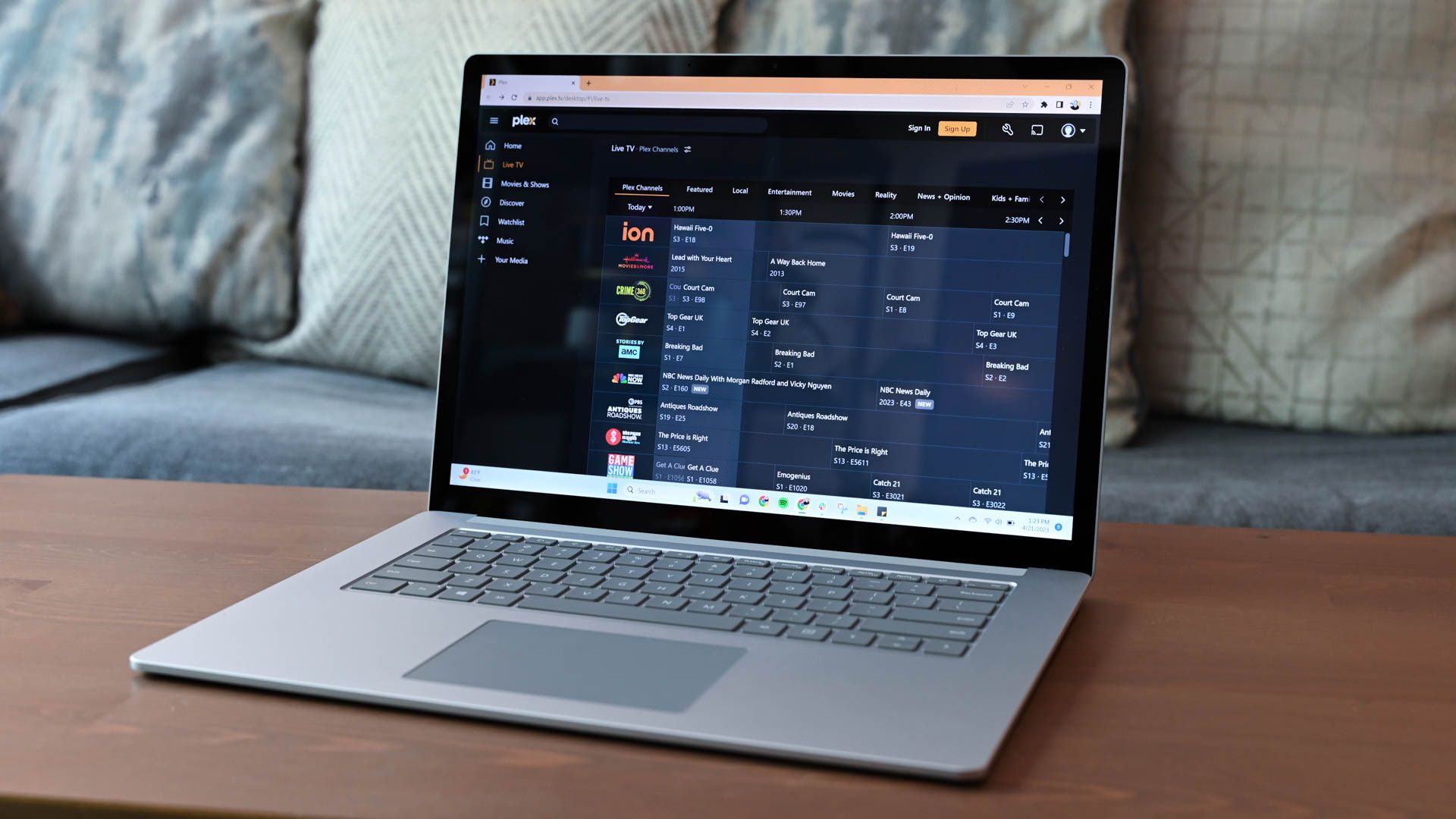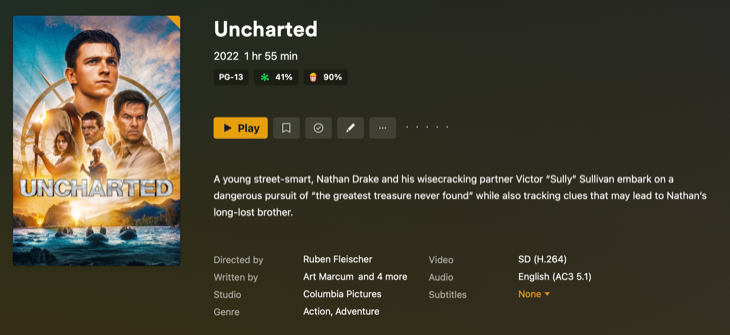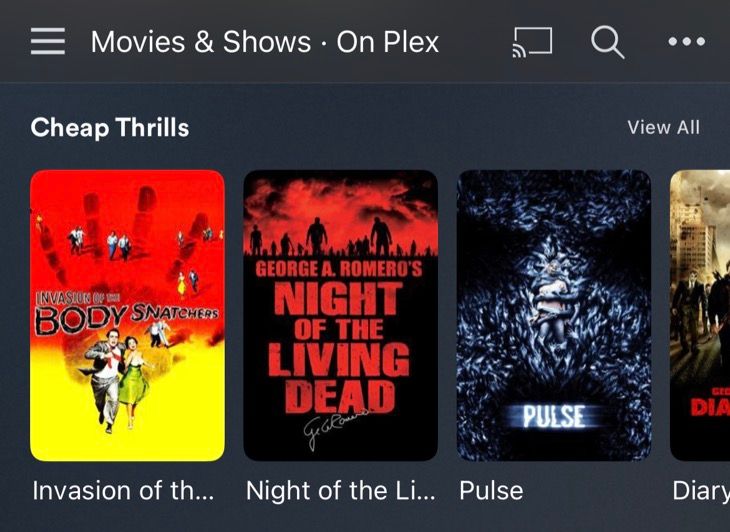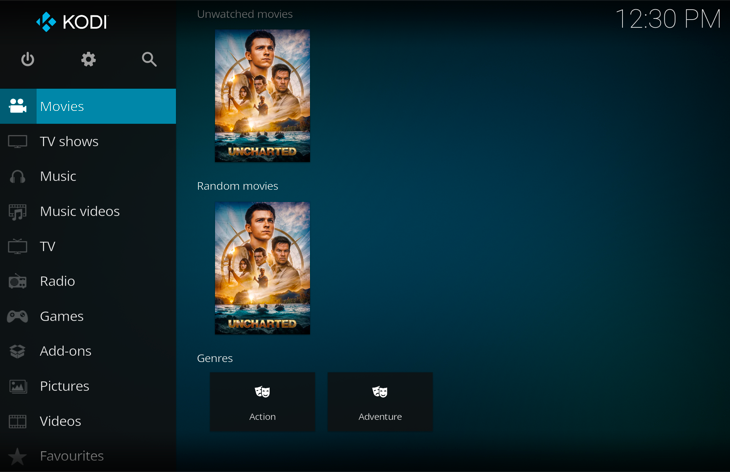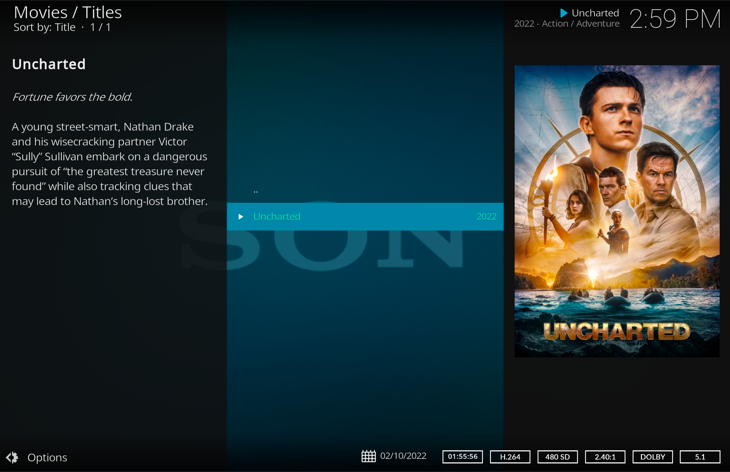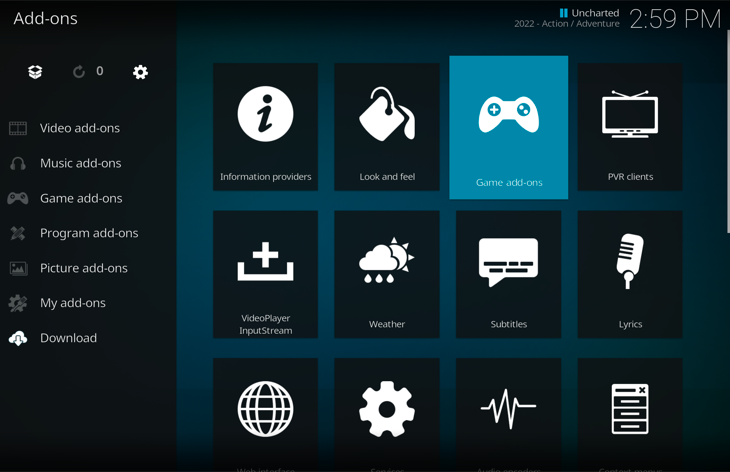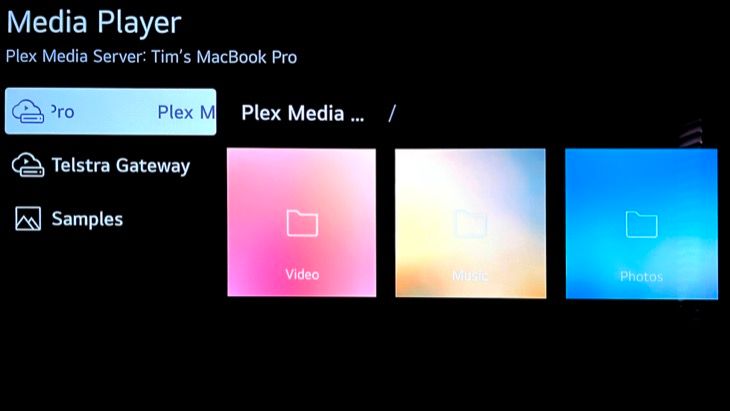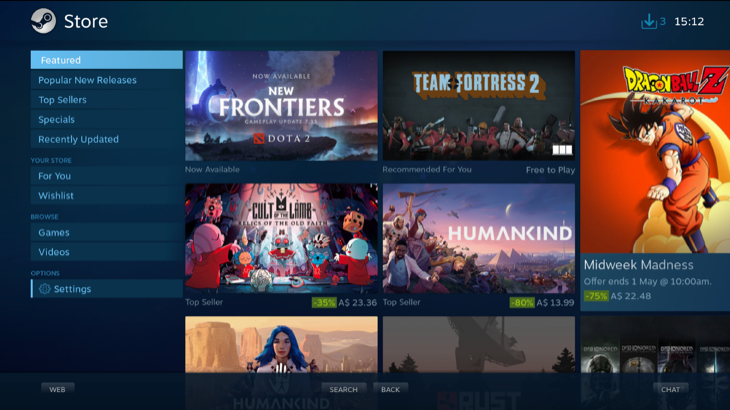Quick Links
Key Takeaways
Plex is a media server solution that runs in one location and is accessed using client apps, a web interface, or DLNA.
By comparison, Kodi is designed to run on your primary media center computer or device but also includes emulators, games, and a richer suite of add-ons.
If you're looking for a way to stream or watch movies and TV shows, there's a good choice you're trying to pick between Kodi and Plex. Though both are solid choices, there are some notable differences that can help you decide between them.
Plex: A Media Server for Streaming Everywhere
Plex is a media server solution that is hosted on a single machine, somewhere on your local network. The server is used to both store and stream media to other client devices on the network.
You can download and install Plex Media Server on a large number of devices, including desktop computers (Windows, macOS, Linux, and FreeBSD) and network-attached storage drives. Plex has relatively low system requirements for servers, though performance will be impacted by the speed of your network and your decision to use wireless networking or not.
Plex has a wide range of client applications to choose from. These allow you to access your Plex library and browse information about what you're watching (like movie descriptions and ratings) using the signature Plex UI. These are available for the major desktop operating systems but also most smart TVs, set-top boxes like the Apple TV and NVIDIA Shield, mobile platforms like Android and iPhone, and even VR headsets.
You can also use Plex via a web interface using a standard browser if you'd rather. If you have a device that lacks a dedicated client app Plex includes DLNA/UPnP streaming which expands streaming capabilities to a huge number of devices that support the standard (particularly older smart TVs).
Though Plex is ideal as a local media streaming solution, it also works remotely. You can log in to your Plex account and stream your media over the internet from anywhere. You can also do things like share your library or watch content with other people over the internet.
Plex is focused tightly on the media experience and includes a library of movies and TV shows that are ready to stream. These include ad-supported and public domain content, plus a large number of streaming live TV channels. You can expand this selection with a broad selection of plugins
Locally, Plex allows you to add your own movies, TV shows, music, photos, and home videos. The media server will scan your library and scrape relevant cover images, descriptions, ratings, and more.
Though Plex is free to download, some features require Plex Pass or a one-time fee. Plex Pass provides unhindered access to streaming via mobile apps, hardware transcoding, local downloads, themes, additional users, the ability to use Plex as a DVR, local Plexamp offline music listening, lyrics, and more. Plex Pass currently costs $4.99 per month, $39.99 per year, or $119.99 for a lifetime subscription.
Kodi: A Media Center Application
Kodi is a media center application that runs on a computer or other device plugged into your main TV. Previously known as Xbox Media Center and later XBMC, Kodi places great emphasis on making its UI fluid and presenting your media in a slick and functional way.
Whereas you might run Plex on a server that's tucked away in a cupboard, Kodi works best on a dedicated home theater PC (HTPC) or similar. You can download and run Kodi on Windows, Linux, macOS, Android, Raspberry Pi, and with a bit of work closed Apple devices like the iPhone, iPad, and Apple TV.
Kodi doesn't come with any media and you'll instead need to add libraries for music, movies, TV shows, and photos. These can be locally attached internal or external drives or network locations like Windows SMB shares and NAS devices. Since Kodi is a self-contained solution, you'll need to put in a bit of extra work to sync your library across different instances.
Just like Plex, Kodi can scrape the web and build a detailed library of content including cover images, descriptions, ratings, and more. The library will keep track of what you've watched and organize content by season. You can also record live TV using Kodi's PVR abilities.
Kodi's interface is beautiful and functional out of the box, but it's also highly customizable with downloadable skins. There is also a huge library of community-maintained add-ons that add all sorts of features, from online streaming services to music visualizations and beyond.
With the right add-ons, you can do more than simply play local and stream remote media with Kodi. There are a vast number of emulators and game launchers available as add-ons including MAME, DOSBox, and Libretro (home of the multi-emulator system Retroarch).
Though Kodi doesn't use a separate server and client structure, you can still stream your library around the house by enabling DLNA/UPnP streaming within your Kodi settings.
Lastly, Kodi is a completely free and open-source solution. There are no premium passes required to unlock functionality but, by the same token, this functionality is a bit more limited.
Plex vs. Kodi: Which Should You Choose?
Picking one system over the other doesn't necessarily mean you're going to miss out on a huge number of features. Both Plex and Kodi broadly support the same types of media, enjoying excellent compatibility with most major video and audio formats. Both will scan and organize your media for you, download covers and descriptions, and present it in an eye-catching manner.
Both are compatible with a huge range of devices, and both are capable of maximizing compatibility via DLNA/UPnP streaming. They're both a great way of putting an old computer you're no longer using to good use. But there are some important differences that you can use to guide your decision.
Plex works well if you want to set up a server that isn't plugged into your main TV. As long as you have the right client apps available, you'll get the fully-featured Plex experience on any device. You can plug the gap with DLNA/UPnP streaming on older devices or use the Plex web interface, but the server arguably works best if your client has a dedicated app available.
Fortunately, Plex has a bounty of client applications available for most modern systems. This means you only need to run a single server somewhere on your network, even on a computer you already use that lives in your study or is completely hidden from view like a NAS device.
Plex is the ideal choice if remote streaming is important to you. If you'd like to be able to access your library away from your home network, Plex makes it easy to do so. All you need to do is log in with your Plex username and password and pick what you want to stream. On top of this, Plex comes with content that's completely free to access.
Kodi is an endpoint for your media that needs to run on a device that's connected directly to your main TV (or projector). Though it too includes the ability to stream your library locally, it is best used on a dedicated HTPC or similar. This allows you to use its beautiful interface and ability to function as a game launcher and emulator box. If you're looking for an all-in-one media center and emulator, Kodi is hard to beat.
Since Kodi must be installed on a device that's plugged directly into your TV, you'll be able to use this device for different things. You could, for example, use Steam's Big Picture Mode to play games in your living room (run them natively or connect your gaming PC using Steam Link) or use an app like Playnite to bring launchers like the Epic Game Store and GOG together under one TV-friendly interface.
Lastly, Kodi is completely free and open source. Plex has more features in terms of streaming from a single, networked library but many of these (like streaming to mobile apps) aren't necessarily free to use.
Install Both for Free (or Try an Alternative Instead)
To sum it up, pick Kodi if you're looking for a single media center application to run on a computer or device that's connected directly to your TV. If you'd rather stream from a single local server to numerous local or remote devices, Plex is the better choice. Alternatively, you can run some combination of the two since there's an official Plex add-on available for Kodi.
Both Plex and Kodi are available to download and try out for free. Kodi is free forever, while Plex has a generous free plan. There's no harm in trying both to see which suits your usage best.
Alternatively, check out some of the best Plex alternatives. Jellyfin is one such free and open-source streaming solution that's worth a look.

